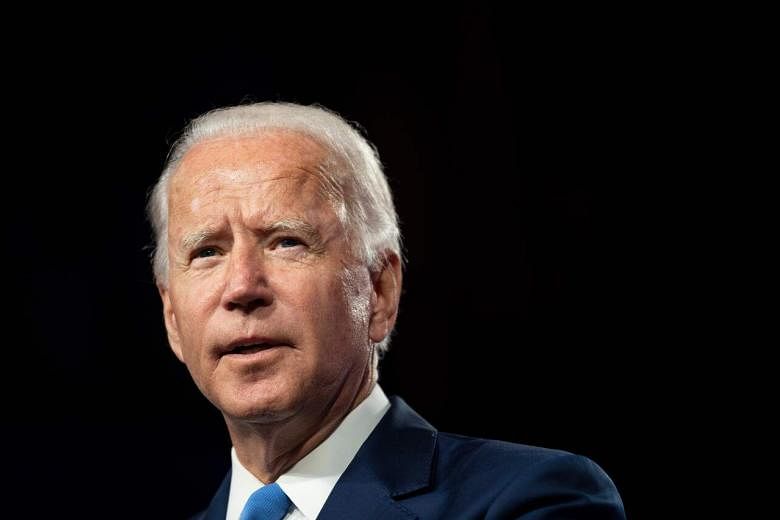WASHINGTON (NYTIMES) - The Department of Homeland Security has declined to publish a July 9 intelligence document that warns of Russian attempts to denigrate Joe Biden's mental health, prompting new scrutiny of political influence at the department.
The intelligence bulletin, titled Russia Likely to Denigrate Health of US Candidates to Influence 2020 Election, was drafted to inform state and local law enforcement officials that Russian state media agencies were posting "allegations about the poor mental health of 2020 Democratic presidential candidate Joe Biden," ABC News first reported on Wednesday (Sept 2).
But before the bulletin was distributed, senior Homeland Security officials intervened to halt publication, department officials confirmed.
Officials from the Office of Intelligence and Analysis briefed Chad Wolf, the acting secretary of Homeland Security, on the document sometime this summer, the department said in a statement.
But in an interview with Fox News on Wednesday, Wolf said he and other career officials at the intelligence office had questioned the quality of the "very poorly written report."
"They're hard at work on rewriting that report, putting it in better context," Wolf said.
"I hope to see that record out soon."
But Miles Taylor, a former chief of staff for the Department of Homeland Security during the Trump administration, told CNN on Wednesday that it would be highly unusual for political appointees at the department to halt an intelligence report about the Russians.
"We had instances like this happen, where the White House didn't want us to talk about Russian election interference, and we had to go around the White House to do it anyway," Taylor said.
The department did not provide additional details about the document or the intelligence briefing that prompted senior officials to intervene.
Wolf said the problems identified with the bulletin were part of a "systemic issue" with his own department's intelligence office, which he noted distributed reports in July that contained information about American journalists who were covering the unrest in Portland, Oregon.
Wolf reassigned Brian Murphy, the official leading that office, after news reports emerged on the bulletins, but the intelligence was still issued to state and local law enforcement agencies.
The department appears to have inconsistent standards of caution for its intelligence briefings.
Intelligence officers wrote that they had "high confidence" in their assessment of Russian election interference, yet its publication was blocked.
But on July 16, the department's intelligence office broadly disseminated a bulletin on "anarchist extremists" committing violence in the Pacific Northwest, although in that case, officials admitted they had "low confidence" in their historical assessment.
"This is the latest in a series of actions that politically appointed department leaders have taken to politicise the operations of the department and skew the intelligence analysis that so many law enforcement officers across the country count on to keep Americans safe," Democratic Representative Bennie Thompson, the chairman of the House Homeland Security Committee, wrote to Wolf on Wednesday.
Thompson asked the inspector general for the department to review the matter.
The department's leaders and its intelligence office have already attracted criticism for appearing to shape decisions around the political whims of the White House, such as actions at the US-Mexican border and the deployment of tactical teams to Portland and Washington, DC, against the wishes of local governments.
One of the core missions of the Department of Homeland Security is to share information on the latest developments in national security threats with state and local law enforcement agencies.
The department often does this by distributing bulletins to information-sharing "fusion centres" throughout the United States.
The breakdown in communication among government agencies was identified as one of the areas needing improvement after the terrorist attacks on Sept 11, 2001.
Those attacks prompted the creation of the Homeland Security Department.
But the Office of Intelligence and Analysis has struggled to earn a reputation for credibility, which other federal intelligence agencies have.
Episodes over the past few weeks have not helped, former Homeland Security officials said.
The Trump administration has long faced accusations of underplaying the threat of Russian election interference, especially when it is geared toward helping the president.
Wolf has said the department is focused on disinformation campaigns and election interference.
But President Donald Trump has made clear that he expects the agency to emphasise immigration enforcement and border issues over its other missions, such as cyber security or information-sharing, former Homeland Security officials have said.
A plan of action for preventing domestic terrorism has been withheld for months even though it was pushed to the department's policy office for review in April.

